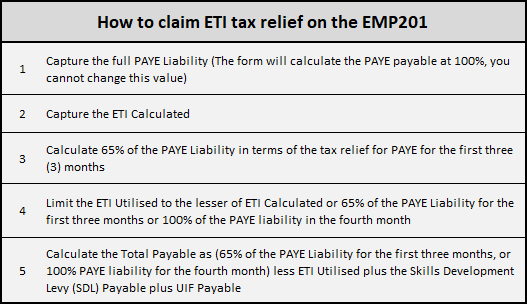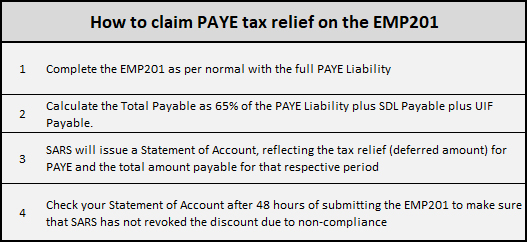
“The pessimist complains about the wind. The optimist expects it to change. The leader adjusts the sails.” (John Maxwell)
To be a good leader in the small business environment a person needs to possess a variety of skills, understand themselves and recognise areas where there is room for improvement. The leader’s abilities will be the main driver for growing the business. An effective leader is required to not only guide a company from a financial perspective, but also to build a team that is accountable and designed to get results. On the surface this sounds like a simple statement, but here are the five main skills that it takes to develop that end goal.
1.Motivation
Leadership is not just about charting the right business course. At the end of the day, profit and loss will be determined by the strength of the team working in the company and by how motivated they are to do their very best.
A recent study conducted by Dr Kou Murayama at the University of Reading found that when people are motivated, they learn better and remember more of what they have learned.
Great business leaders are capable of establishing a positive culture in their organisation, and to do that they need to lead from the front. A true leader needs to exemplify the values they want to instil in their employees and motivates their team through their passion and accountability. That said, a leader cannot believe that they alone will be able to inspire their employees to greatness and they should not diminish the value of rewards in motivation. Simply adequately rewarding your team with good salaries and other non-monetary bonuses and offers can inspire them to do better work.
According to recent findings in a cognitive neuroscientific study by Adcock, Thangavel, Whitfield-Gabrielli, Knutson & Gabrieli, rewards enhance learning, focus and enthusiasm due to the modulation of hippocampal function by the reward network in the brain.
Motivation then is a blend of the character of the leader, the culture within the company and the rewards being offered in return for effective and productive employees. A good leader needs to take all that into account to get the most from their team.
According to Kara Kelly, Executive Director of CompleteContents.com, “Leadership is not about who is in charge. It’s about making sure your team stays focused on the goals, keeping them motivated and helping them be the best they can be to achieve those goals. This is especially true when the risks are high and the consequences matter.”
2. Communication
Good, honest communication with both employees and clients is one of the key pillars to small business success. The leader is the one primarily responsible for developing a good communication system and culture within the organisation and for ensuring employees are able to effectively communicate the necessary information, opportunities and problems they perceive to the right people, quickly and easily. Forbes reports that one of the simplest ways new businesses collapse is through either a lack of communication or through too high a complexity level of communication.
Employees should feel empowered to communicate directly with those in charge if they perceive problems or notice opportunities and should be rewarded for doing so, and feedback to both employees and clients should be frequent and simple.
A bad communication system is one that generates numerous, complex reports that have to travel through a chain of command before it reaches the right person. Leaders should focus on being accessible, communicating more simply and more often to ensure all parties are fully aware of what needs to happen, and the details associated with it. Your lowest level employees and clients don’t need 60 page reports filled with complex graphs and algorithms explaining what you are going to do– a quick message to outline targets and how they will be achieved, by which deadline is far more effective.
3. Passion
The best leaders are absolutely passionate about what they do and their company as it’s impossible to become successful at something that one does not care about. Before starting an endeavour a business leader needs to seriously ask themselves if what they are doing is something they are passionate about. The early years of a business are filled with grind, difficulty and setbacks and tackling all this without passion for what you are doing is close to impossible.
Passion for a business also has numerous other positive side effects for it such as drawing the right consumers, building networks with similarly minded individuals, and creating authenticity that your audience (suppliers, customers and employees) will identify with.
But obviously not all businesses are born out of passion for the product. Not many plumbers for example will say that the one thing they always wanted to do when they left school was work with pipes and bathroom fittings! These leaders find their passion in other places and inspire themselves by perhaps knowing that they are providing necessary and helpful services to people in need, that they are doing good, providing for their families or giving themselves, and their employees, the kind of lifestyles they all really want. Finding genuine passion for your business, from whichever source, will ultimately be one of the biggest factors in also discovering success.
4. Interview Skills
In the early days of a business being able to find and recruit true talent can make or break a company. An entrepreneur needs to be their own Human Resources department and discovering and nurturing true talent is therefore absolutely essential. Finding the right candidates begins when determining what kind of candidate is truly needed in the company. All too many job adverts claim to want someone who is a “copywriter, graphic designer and SEO specialist, who dabbles in social media and has three years agency marketing experience”. These adverts show a clear lack of leadership in the company, because unicorns with that kind of diverse experience are extremely rare, and clearly the roles the company really needs filled have not been considered carefully enough.
Defining exactly what it is a company needs will allow the entrepreneur to advertise the position effectively, remunerate fairly and therefore attract the right kind of person into the role.
After attracting the right candidates to an interview, the intelligent small business employer will then focus on a few key things at the interview stage. Interviews should focus on “behaviour based interviewing” or interviews that focus on examples of past behaviour and achievements. What the interviewer is looking for is someone who can effectively work and deliver unsupervised as they won’t have the capacity to watch over that employee 24/7. A good trick is to send in someone you trust to have a casual chat with the employee while they are waiting for their interview, or when you need to “step out” for a few minutes. This employee will be more likely to get a sense for how the person really is and determine if there is good chemistry.
Understanding a potential hire’s motivations for taking a job is also critical. You need to know this person is as passionate as you are about making your company work and isn’t just in it for the money or, looking to fill a short-term role. In the end, you want to ensure whoever you hire will be there a few years to limit the necessary training and wasted time and expense employee churn can create.
5.Education and personal development
People who choose to go into business for themselves usually do so for a number of reasons that range from years spent in an industry, to having a good idea, or simply wanting to try something new. Whatever the reasons it’s safe to say that the skills they have at the start of the business are usually not the ones they are going to need in the future as the company grows and expands. A crucial aspect of building a successful business is in the entrepreneur making sure that they are as qualified as possible to meet the upcoming challenges of the company and planning ahead so they aren’t caught off guard.
It is therefore essential that any business leader, but particularly those in start-ups, continue to educate themselves on their industry and in business. The more skills a leader has, and the more they understand their company, legislation affecting their industry, new developments and the competition, the more chance they have of making it to the end game. The answer is simple, never stop learning, and encourage a culture in which this is true of each employee in your business.
As John F. Kennedy said, “Leadership and learning are indispensable to each other.”













